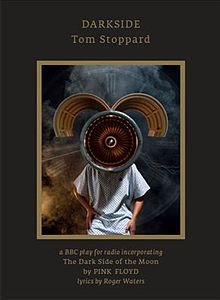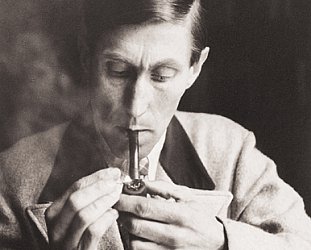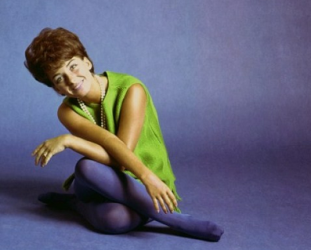Graham Reid | | 2 min read

Among the more crazy things which some serious stoners believed -- and they believe most things -- was that if you cue up Pink Floyd's Dark Side of the Moon album with the film The Wizard of Oz there are some weird parallels of music and image which might lead you to think . . .
The question to be asked about this is simple: Who first did that?
(Follow-up question: Why?)
The useful feature of Dark Side -- which has lead to many inconclusive conversations and doubtless a thesis or two -- is that it could be about anything: it is about a dystopian worldview, consumerism, insanity, emotional dislocation, fantasy . . .
And interestingly -- more interesting than the Oz connection -- is that the acclaimed British playwright Tom Stoppard used Dark Side of the Moon as the emotional, philosophical and musical backdrop to his hour-long black-comedy radio drama Darkside.
And in it he made reference to Neitzche, Fifties superhero radio serials, Sunset Boulevard ("it's the pictures that got small"), existential questions (if a juggler is on radio, how do you know there's a juggler?), Arnold Schwarzenegger, a naked guru on a mountaintop with the secret of life, witchcraft, Hobbes, Kant . . ..
The play was broadcast in August 2013 on the BBC, the 40th anniversary of the album's release, and appears as well presented small hardback of the text with two discs, the first of the play, the second the text in various translations. (Faber and Faber/BBC)
It's a curious piece, piece of pot-boiler philosophy which revolves around Ethics Man, Emily who is seeker of great truth and various cyphers for a wise one, banker, the Witch Finder (played by Bill Nighy) politician and so on.
It poses an interesting question at the start when Ethics Man ("let me through, I'm a moral philosopher") diverts a train away from the broken bridge and swollen river to save the lives of those aboard. But in doing so he kills a young boy (more correctly "a thought experiment") who might have become someone worthy while train might have contained a young Hitler, Stalin or Mao.
This -- and discussions about the needs/merits or otherwise of cheating, and such ideas -- are interesting, but throughout there's a smugness of post-Modernist borrowings ("of all the gin joints in all the towns in all the world she walks into mine") which are more clever than useful.
But sometimes --as when the banker and the politician meet -- there is very dry British humour. And Emily's final words show Stoppard the master of encapsulating imagery which will linger.
What does impress is how threads of Floyd's Dark Side emerge at relevant points to underscore the ideas on display, or add an atmosphere behind the monologues.
At the end of the hour you will have felt drawn in but perhaps won't be much wiser. Much like listening to the album?
And by the way, in Darkside there is also a reference to . . . The Wizard of Oz.
Sffftttttt.
The plot thickens, maaan.
There are other articles about Pink Floyd, including interviews with Roger Waters and David Gilmour, at Elsewhere starting here.
If you want to hear a very weird and possibly philosophical radio thing with music, check out this remarkable character.





post a comment